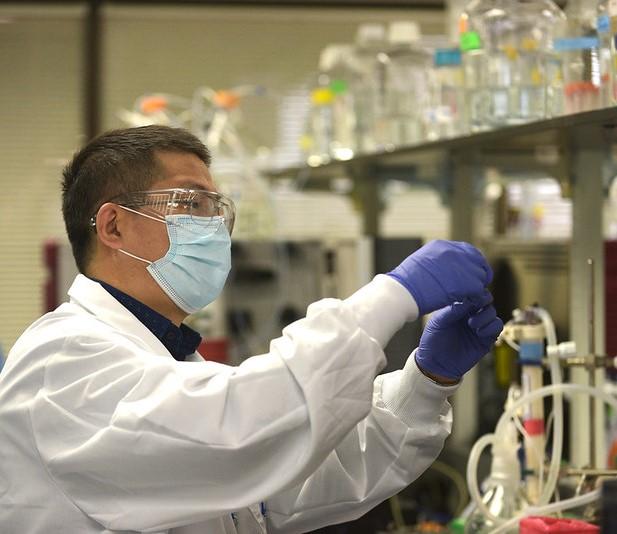In a detailed review ahead of next week's advisory committee meeting, Food and Drug Administration (FDA) staff today said the Novavax COVID-19 vaccine will likely provide meaningful protection against the Omicron variant, but they raised concerns about the potential for rare cardiac conditions after vaccination.
Cardiac issues raised with other vaccines
The FDA's Vaccines and Related Biological Products Advisory Committee (VRBPAC) is slated to consider emergency use authorization (EUA) for the Novavax vaccine on Jun 7.
The vaccine is a recombinant nanoparticle protein-based product that contains an adjuvant and is given in two doses 3 weeks apart. The vaccine is made on a more traditional production platform, raising hopes of increased vaccine uptake among Americans who have shied away from newer mRNA vaccines. The vaccine is already used in other parts of the world.
In an 80-page review of the vaccine's efficacy and safety, the FDA combed through trials that included 30,000 patients and were conducted before the Delta and Omicron surges. Last June, a phase 3 trial found that the vaccine had 90% overall efficacy and was well tolerated, with few serious and adverse events. The FDA said based on efficacy estimates, the vaccine is likely to afford meaningful protection against Omicron, especially against severe disease.
Also in its report, the FDA examined four cases of myocarditis that occurred within 20 days of receiving the shot. It said the cases raised concerns about a link to the vaccine, similar to associations found earlier with mRNA vaccines. Officials suggested that the company flag the risk of myocarditis and pericarditis in its written materials.
In a statement today, Novavax said natural background levels of myocarditis are expected, with young males known to be at higher risk. It said the difference in the rates between the vaccine and placebo groups was very small (0.007 % and 0.005%, respectively) and that in post-crossover portions of the study, cases were within expected parameters.
So far, clinical data covering 50,000 participants doesn't support a causal relationship, the company said, adding that it will continue to monitor all adverse events, including myocarditis and pericarditis.
Over half in US live in areas of medium, high spread
On Twitter today, Centers for Disease Control and Prevention (CDC) Director Rochelle Walensky, MD, MPH, said more than 55% of the US population are in areas with medium or high community COVID-19 levels, about the same as last week.
She added, however, that new areas have shifted from lower levels to medium and high, and she urged people to remain aware of their community transmission and take precautions as needed.
In other US developments:
- A study led by National Institutes of Health (NIH) researchers found that two widely used drugs for treating autoimmune diseases—infliximab and abatacept—didn't shorten the disease course but did improve clinical symptoms and reduce deaths. The large randomized placebo-controlled study took place in hospitalized adults.
- Ashish Jha, MD, White House coronavirus coordinator, said yesterday that if the FDA and CDC authorize and recommend COVID-19 vaccines for kids younger than 5, doses could be available by Jun 21, according to the New York Times. The FDA's VRBPAC is slated to review vaccine data for Moderna and Pfizer/BioNTech on Jun 15, and the CDC's vaccine advisors are expected to meet shortly after.




















